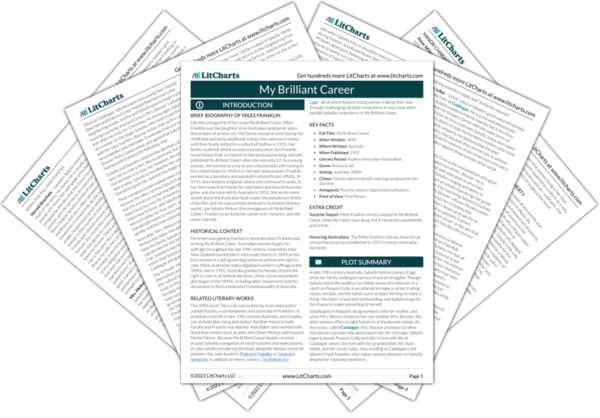Sybylla taking responsibility for her father represents a disruption of traditional gender and family roles, as a child is burdened by her father and a woman is in charge of a man. Even in the family’s circumstances, Mrs. Melvyn refuses to act against gendered expectations. Her reference to the “curse of Eve” is an allusion to the biblical story of Adam and Eve, the first people created by God in the Judeo-Christian religion. Eve is tempted by a snake to eat the forbidden fruit of knowledge. As punishment, God decrees that Eve, and all women, will be “ruled” by her husband. As a Christian woman, Mrs. Melvyn believes her duty binds her to obey her husband, so she cannot challenge his drinking.
